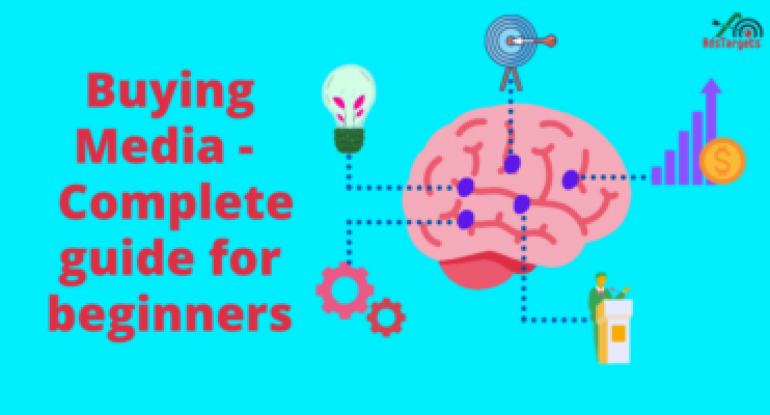Smart marketers are always ahead of their competitors because of their smart thinking and actions. The marketing space is kind of very competitive today.
The demand for quality traffic is growing day by day which means the cost is also increasing pushing marketers to improvise.
Media buying tends to be one of the ways online businesses are source for exposure and traffic and it’s important you know what it’s involved before jumping into it.
In this article, I will walk you through the terminologies, types, processes, examples, and some agencies you should consider when it comes to buying media.
Table of Contents
ToggleWhat is media buying?
Media buying is the process of identifying and buying the best-targeted ad spaces at the lowest cost possible to show ads to a targeted audience.
The goal is to place your ads at the best ad spots, to be shown at the best time and at the lowest cost and of cause to the most relevant audience to increase exposure and conversion rates.
The process is relevant to both digital channels (websites, social media, streaming) and traditional marketing channels (television, radio, print).
If done effectively, media buyers can achieve maximum exposure among their target market for the least amount of spend.
Types of Media Buying
Generally, there are three types of media buying which are as follows:
#1. Direct media buy: In this situation, the media offers directly negotiate and buy ad spaces on a single or group of websites from the owner for the purpose of displaying ads.
#2. Network media Buy: The buyer places ads on the ad network and the ad network determines among their publisher’s sites which particular sites, time, and cost to place those ads on the websites that meet the buyer’s specifications for more impressions and exposure.
#3. Self-serve media Buy: This kind of media buying allows you to have your own account and place the ads as you wish with the help of various tools to optimize those ads for optimal performance.
Media buying example
There are several examples of media buying which are as follows;
#1. Channel choice: This involves choosing the right channel such as a specific niche website for Fashion with the aim to place ads to target only people who are interested in fashion products or services.
#2. Targeting: Here you need to choose a specific location, time, and age group of your target audience depending on the platform of your choice.
In traditional media, you decide to show ads on specific programs during specific hours of the day or night.
#3. Cost of media buying: Cost is crucial and plays a vital role in media buying. It involves paying the lowest cost as much as possible.
It’s important to negotiate and make sure you are paying the lowest cost possible when running your ad campaigns to maximize your exposure.
Media buying process
The media buying process is divided in simple strategic steps to ensure your media buying goal is reached.
It ensures the identification of ad spaces is selected right ensuring your target audience is reached at the right time, at the right prices and the right media outlet.
These outlets can include newspapers, television slots, magazines, radio, and websites such as search engines, social media platforms, blogs etc. Media buying is considered a paid aspect of your marketing plan as you are required to purchase space.
Steps in the media buying process
To ensure you reach your goal buying media, there are specific and important steps you need to follow:
#1. Identify your target audience: This is the first step and very important because the success of your campaign depends on it. It’s only when you know and understand your target audience you can target them.
You can profile your target audience in various ways such as their demographics and psychographics. This will give you a broader sense of their need and which media outlet will be appropriate to reach them and possibly the best time to reach them.
#2. Market research: This is a very important aspect as well because of the benefits that come with understanding your target market.
You will need to understand which media is the most appropriate for your media buy campaigns and at various prices to make the best choice.
Market research gives information about your competitors and what exactly they are doing that works for them to help you get prepared better to compete with them in the same market.

Also, you will be able to know if they read more newspapers, spend more time online or watch more TV and what time will be the most appropriate to target them.
#3. Set a goal and objectives: To get your media buying campaign to work effectively, you will need to set a goal or goals and objectives to help you achieve those goals.
Your goals may depend on the type of media buying campaign. you have to identify if you are creating brand awareness or getting leads or conversions to boost your sales.
All these should be set so you will be able to track the effectiveness of your campaign and optimize it periodically to achieve your goals. Also by setting clear goals, you will be able to know how much you need to spend to achieve your media buy target.
#4. Negotiating: Once you have done all of your research, objective creating, and planning, it’s time to approach a media buying agency.
At this point you can negotiate for advertising time or space, trying to get the most favorable buys that work for you. You can talk about what your goals are and find out from them which outlets may be the most effective to reach your target audience.
#5. Launch your campaign: The launch stage may be the most exciting stage because your wonderful ad or commercial is placed.
However, the work is not complete. A good media buying agency will monitor your placement to ensure that it is aired or distributed according to your standards and that it brings in the results you are looking for.
#6. Measure Results: It actually depends on the media agency or media outlet you choose for your campaigns. Online campaigns are easy to measure as all online ad networks have some means of collecting data on your ad campaign performance.
Offline media outlets however can not be specifically measured or tracked but based on your set goals, you will be able to figure out if a specific media buying campaign was effective or not.
Alternatively, Your media agency will have some information on how your campaign was placed and show you evidence to be able to have an idea of how your money was spent.
Media buying agency
Media buying agencies can be found both online and offline. However, choosing the right one should be the priority.
You can start your media buying campaign right here and right now with us at AdsTargets. We offer your desired media-buying services.
We have all the ad formats and a large exclusive list of publishers to place your ads in specific locations, time, audience time and how much you want to spend on ad campaigns is completely decided by you.
Conclusion
In case you decide to start buying media to enhance your brand visibility online or offline, this article will be of great help.
We have made it easy for you to read and follow most of the things you will need to know before putting your money into buying media.
We also caution you to do a bit of a reach for the agency you choose and ask all the questions you need to get the right answers before you will start the process to avoid loss of money.
On a final note, please share your thought about this article in the comment section.








